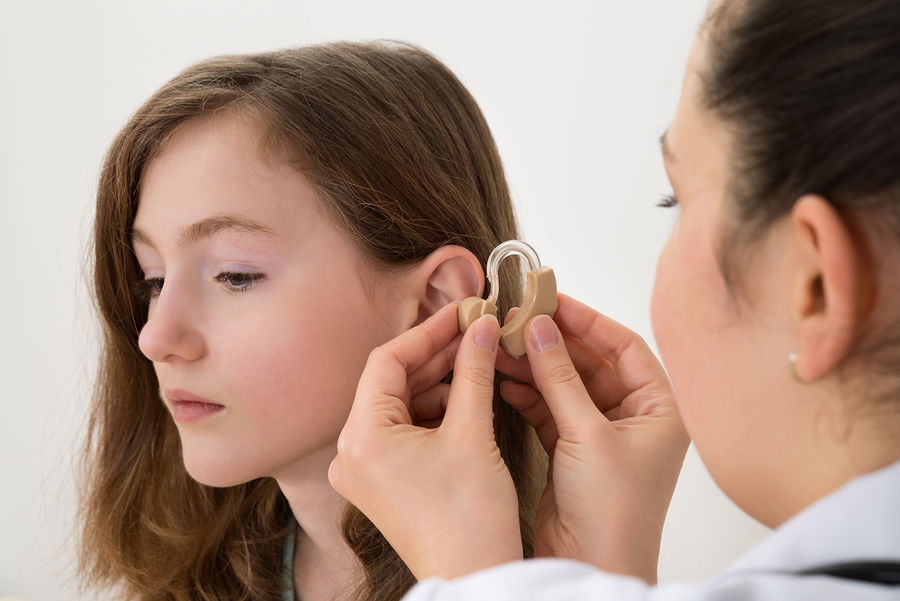Hearing and language disorders are often associated (at the professional association level, for example) although in reality they are not always related. Language difficulties may stem from poor hearing, but often depend on behavioural, attentional and socioaffective disorders. Various professionals detect and treat language disorders including school psychologists, remedial teachers, speech therapists, neuropsychologists, pediatricians and psychiatrists; speech therapists are central to this multidisciplinary approach.
The need for audiologists and speech therapists is continually increasing due to the aging of the Canadian population (Parkinson’s disease and deafness). They can practice in schools or hospitals, private clinics, rehabilitation centres, long-term care centres or in universities (teaching, research).
AUDIOLOGIST
DESCRIPTION
Audiologists treat communication disorders in infants, children and adults who become hearing impaired or deaf, who have problems understanding language, tinnitus or occupational deafness. The role of audiologists is also to support their patients by suggesting ways to reduce the effects of their disability on their social, professional or affective life. In certain difficult cases, audiologists will also provide patients’ families with advice and information.
DUTIES
- Assess the hearing of patients and their hearing capability using advanced hearing tests.
- Identify middle ear problems.
- Specifically recognize the needs and life situation of patients.
- Propose an intervention plan (sign language, hearing aid, arrangement of living space).
- Prescribe and adjust hearing aids.
- Propose hearing rehabilitation.
- Support patients in their applications for reimbursement.
SPEECH THERAPIST
DESCRIPTION
Speech therapists investigate all problems related to the understanding and expression of spoken and written language. They treat language disorders (autism, dysphasia, dyslexia), speech disorders (stuttering, articulation), voice disorders and language development delays. Speech therapists and audiologists often work together, particularly when patients are deaf or hearing impaired. Speech therapists can also teach or do research.
DUTIES
- Diagnose speech-related problems.
- Identify the nature and scope of the problem observed.
- Seek out the causes (e.g. physiological, neurological, affective, familial, social).
- Offer therapeutic and educational sessions.
- Present new means of communication to interested patients.
- Support the patients’ circle.
- Promote the social, educational and professional integration of patients.
EDUCATION AND JOB REQUIREMENTS
Audiologists and speech therapists are regulated in some provinces including Quebec, Manitoba, New Brunswick, Saskatchewan, Ontario and Alberta. It is illegal to practise either profession without being a member of the appropriate provincial order.
A bachelor’s or master’s degree in audiology or speech therapy is required to practise these professions.
SKILLS
- Be familiar with speech and language mechanisms from a linguistic, biological and psychosocial viewpoint.
- Show an interest in medical science and psychology.
PROFILE
- Active listening skills
- Excellent observation and analytical skills and ability to see the big picture
- Good at explaining things
- People skills
- Aptitude for teamwork
- Excellent interpersonal relations
SALARY
The disparities depend on the province, with professionals in Alberta earning 50% more than those in Quebec.
CAREER PATH
Salaried audiologists and speech therapists can choose to go into research after a few years of practice. They can also open their own practices or work with other medical or paramedical professionals.
